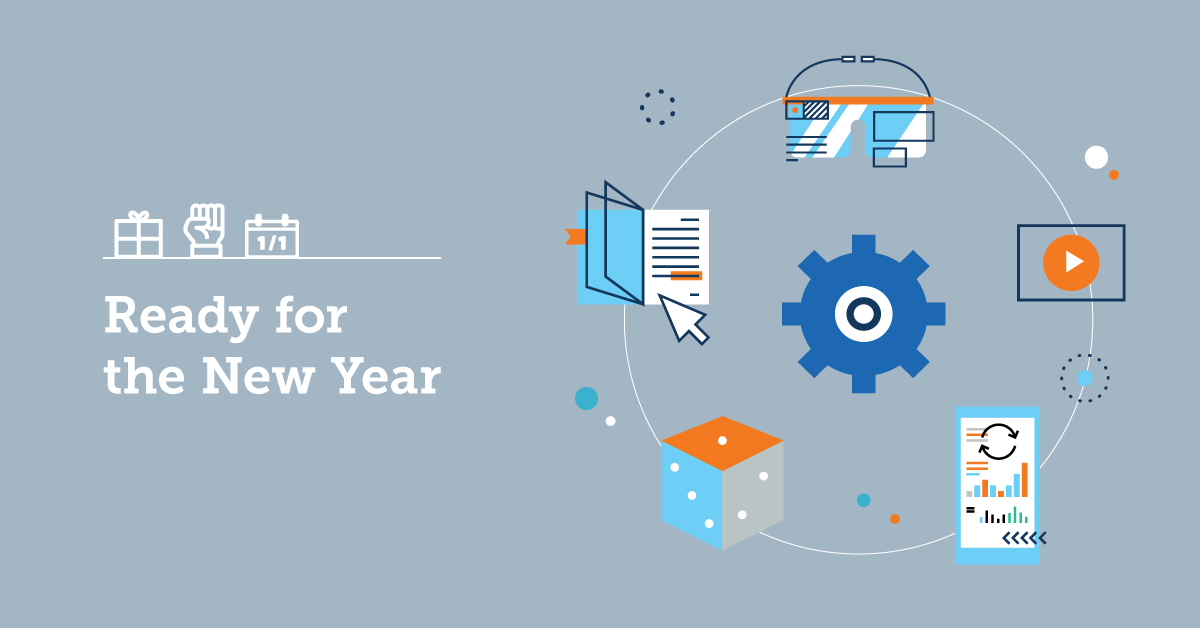Do you wish to have happier employees and more productive new hires? These ultimate staff onboarding trends are what you need to know before revamping or creating your employee onboarding process.
Even companies with the best onboarding programs are looking for new ways to make onboarding playful, practical, and original. In fact, the very nature of a good employee onboarding program is nothing like it used to be.
Today, we’re looking at 7 staff onboarding trends that have been picking up steam and will be extremely valuable to your strategy. We’ll also share the employee onboarding best practices you need to stay ahead of the pack.
7 staff onboarding trends for 2022
These are the employee onboarding trends you need to know about:
1. Preboarding matters
A job doesn’t start on the first day at the office. It starts the exact moment the offer is sent and accepted. And this is exactly when the onboarding process should begin.
Say hello to preboarding. We know it sounds like an impersonal process, but wait until it gets the popularity it deserves. Don’t forget remote employees, too. No matter the distance, you should greet the new team members online.
This isn’t an entirely new concept, but it’s just recently gained some attention. The reason? We’re moving to an era when employees aren’t the only ones competing with each other for a job position. Now, companies are the ones competing for the right caliber of talent.
This is why they should view new hires (or employees transferred to another department) as part of the team, even before they turn their new computers on for the first time.
While managers wait for the day new team members are coming in, they should send regular emails to check in, share company news and updates, invite them to future meetings, or send tips on their role and how they’ll contribute to the company. Managers need to act as if new hires are already part of their team.
Plus, employees who feel relaxed about blending in are bound to fit in more quickly.
Preboarding is also the time to get paperwork out of the way. Companies shouldn’t leave HR onboarding, orientation, and company presentations for the first day in the office.
There are two benefits to including this type of admin work at this stage. First, new hires get to know more about their new company before they even start. Second, they reserve the first day for activities that help foster better relationships.
All these tips get new hires to love their company on day zero. And if they do, we’re talking about the best employee onboarding process they’ve ever experienced.
Make employee onboarding easy with TalentLMS
2. Don’t skip virtual onboarding
As remote employee onboarding will continue to evolve, it’s vital to dig deep into providing a first-class virtual onboarding experience to all your new hires. How’s this possible?
Whether you offer strictly remote onboarding or a hybrid model, you should definitely consider creating a warm, welcoming, and inclusive virtual environment. This is where your employees feel secure and thrive, as distance is no longer an issue.
Don’t forget that the first day at work can be daunting. Things can get pretty awkward, pretty fast, if you aren’t ahead of the game. Plan accordingly and design your remote onboarding with extra caution.
Invest in all the powerful training tools related to current onboarding technology, as well as in the newest employee onboarding best practices. Virtual onboarding must be rich.
For instance, implement VR in your employee onboarding. It helps improve the onboarding process for your new hires. VR solutions are rather impressive to the employees looking to become members of tech-savvy businesses.
3. Opt for personalized onboarding
Everybody wants to feel special. And it makes sense. You like it when your barista serves your coffee without you telling them whether it should be a macchiato or an Americano.
Personalized onboarding is one of the best employee induction practices right now. It is based on the same philosophy.
Employees want to feel like they’re being heard. When planning a personalized onboarding experience, consider new hires’ preferences, interests, and, of course, expertise. This way, they will form a connection with their team right from the beginning.
That’s one of the employee onboarding best practices you should definitely keep in mind when revisiting your onboarding strategy.
Here are a few tips to engage employees by bringing them on board in a more personalized way:
- Provide new hires with paperwork specifically designed for them.
- Select mentors that match their style and personality.
- Catch up regularly to see how they feel about their role and the company.
- Design activities around their interests.
- Welcome them with personalized messages according to their position.
- Invest in personalized eLearning strategies.
Personalization’s long been associated with productivity. So, suggesting that employees perform better when their company respects their personal interests sounds legit, right?
4. Focus on cultural assimilation
Being heard is not the only concern for employees. They also love belonging and feeling like insiders—just like everyone else. This is exactly where cultural assimilation can help organizations achieve a perfect working environment for their team members.
Cultural assimilation is a new entry in the new hire onboarding trends list. This is quite different from the company culture concept. We’re not talking about “mission, values, and goals,” here. We’re delving into culture much deeper than that. And giving true meaning to employee onboarding best practices.
The way people behave, talk to each other, and work in the office are all examples of cultural assimilation in practice. More and more companies take the time to explain their business’ unwritten rules. Think special celebrations, nicknames, slang. All so that new staff will feel prepared once onboarding ends.
Including new employees in these cultural parts of your organization even before they’re ready to work automatically turns them into insiders. They’re part of your group now.
And, according to an onboarding survey we conducted, new hires are more concerned about culture-related issues during their first days at work. For example, they’re more concerned about understanding the expectations of a manager than they are about their ability to do the work. And yet, only 39% of companies offer company culture training as part of their onboarding process.
The importance of cultural assimilation has risen, and so has company culture training.

5. Invest in automation—but take it easy
How could an industry packed with people, legal procedures, and paperwork not get involved with technology?
A few years ago, automation became one of the hottest new hire onboarding trends. In a short time, it won first place among the best online onboarding strategies. Now, it’s being worshipped like Meryl Streep in every Oscar ceremony.
But humans over-banked on machines, and we automated like crazy.
Automation is, indeed, valuable. From eLearning simulations to chatbots and AI, when it comes to onboarding and human resources, every tech tool is on the table. But there’s a significant issue. Automation is not personalized at all (remember trend 2 we talked about earlier?).
Like it or not, personalization is the only way for businesses to create a smooth transition from a great candidate experience to a great employee experience. So, when you’re using automated technology to make your life easier, think about your employees too.
The main question is not whether you should automate the onboarding experience, but which part you should automate.
6. Highlight niche training
For a long time, multi-tasking used to be one of the most wanted employee strengths. So, when employers onboarded new members, they didn’t zoom in on any specific skills; they were trying to train everyone on everything. This staff onboarding trend created a generation of multi-taskers with no specific niche or targeted skills. But technology and work requirements have changed a lot.
Today, job positions need more attention. There are new technologies, different verticals for brands to communicate with their audience, and specific requirements new roles come with. It’s safe to say that the world is starving for specification. And this is precisely what this trend is all about.
Companies now, more than ever, need to invest in niche learning and equip their employees with the exact, essential skills needed for their actual position. Later, they can move on to other types of training, if additional skills are required.
Just one training topic at a time.
Meet TalentLibrary™
A growing collection of ready-made courses that cover the soft skills
your teams need for success at work![]()

7. Offer microlearning
Microlearning is definitely among the current onboarding trends. But it’s not just a trend. It’s a solution.
Microlearning (or microtraining) can be delivered through many different formats, but it has to be broken into many, short parts. Whether it’s a video, a presentation, an audio file, or even articles, the average time it should require from a learner shouldn’t exceed 5 to 10 minutes.
It’s no secret that our attention span is getting shorter and shorter. This results in a call for more concise learning content.
So, it comes as no surprise that most trainers have stopped info-overloading their trainees. Because, naturally, they couldn’t process all this information. Companies, nowadays, need to put their learners first, focus on learning retention in the age of shortened attention spans, and help them by being transparent and inclusive.
Get started with impressive employee onboarding
Staff onboarding is your only way to make a lasting first impression on new hires. It’s not just about effectiveness and completed tasks. It’s essential that you can quickly adapt to the new employee onboarding trends that will amaze your new employees from day zero.
So, which of these staff onboarding trends are you thinking of trying first to improve your onboarding?
Originally published on: 05 Dec 2018 | Tags: Online Employee Onboarding,Trends



